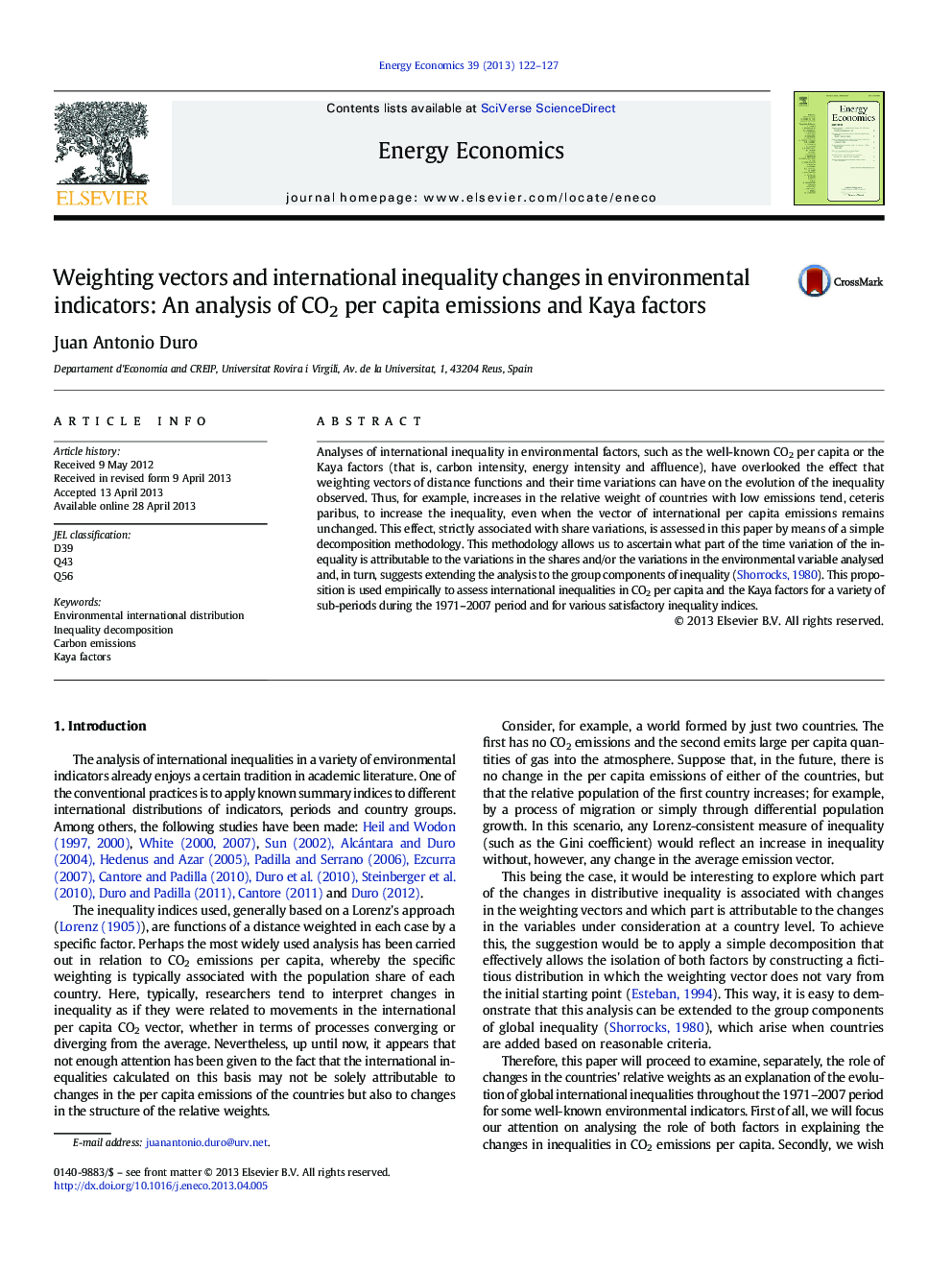| کد مقاله | کد نشریه | سال انتشار | مقاله انگلیسی | نسخه تمام متن |
|---|---|---|---|---|
| 5064977 | 1476724 | 2013 | 6 صفحه PDF | دانلود رایگان |

- We analyse the role of the weights on international environmental inequalities.
- We find its importance for some environmental indicators and periods.
- Typically, the role of the weights has been an inequalizer.
Analyses of international inequality in environmental factors, such as the well-known CO2 per capita or the Kaya factors (that is, carbon intensity, energy intensity and affluence), have overlooked the effect that weighting vectors of distance functions and their time variations can have on the evolution of the inequality observed. Thus, for example, increases in the relative weight of countries with low emissions tend, ceteris paribus, to increase the inequality, even when the vector of international per capita emissions remains unchanged. This effect, strictly associated with share variations, is assessed in this paper by means of a simple decomposition methodology. This methodology allows us to ascertain what part of the time variation of the inequality is attributable to the variations in the shares and/or the variations in the environmental variable analysed and, in turn, suggests extending the analysis to the group components of inequality (Shorrocks, 1980). This proposition is used empirically to assess international inequalities in CO2 per capita and the Kaya factors for a variety of sub-periods during the 1971-2007 period and for various satisfactory inequality indices.
Journal: Energy Economics - Volume 39, September 2013, Pages 122-127